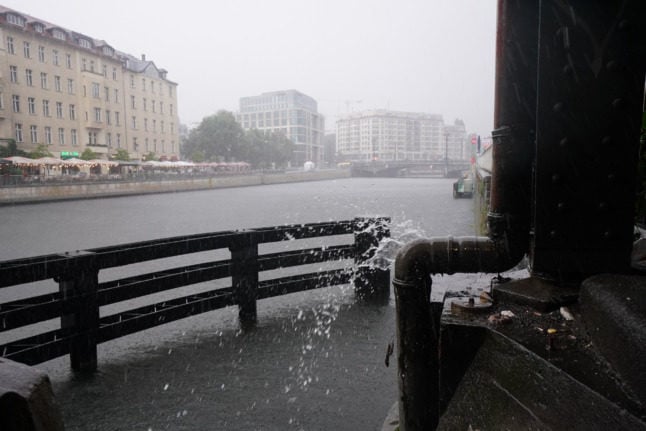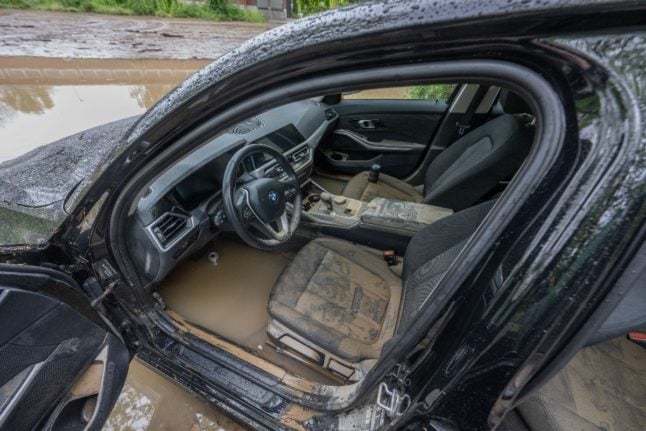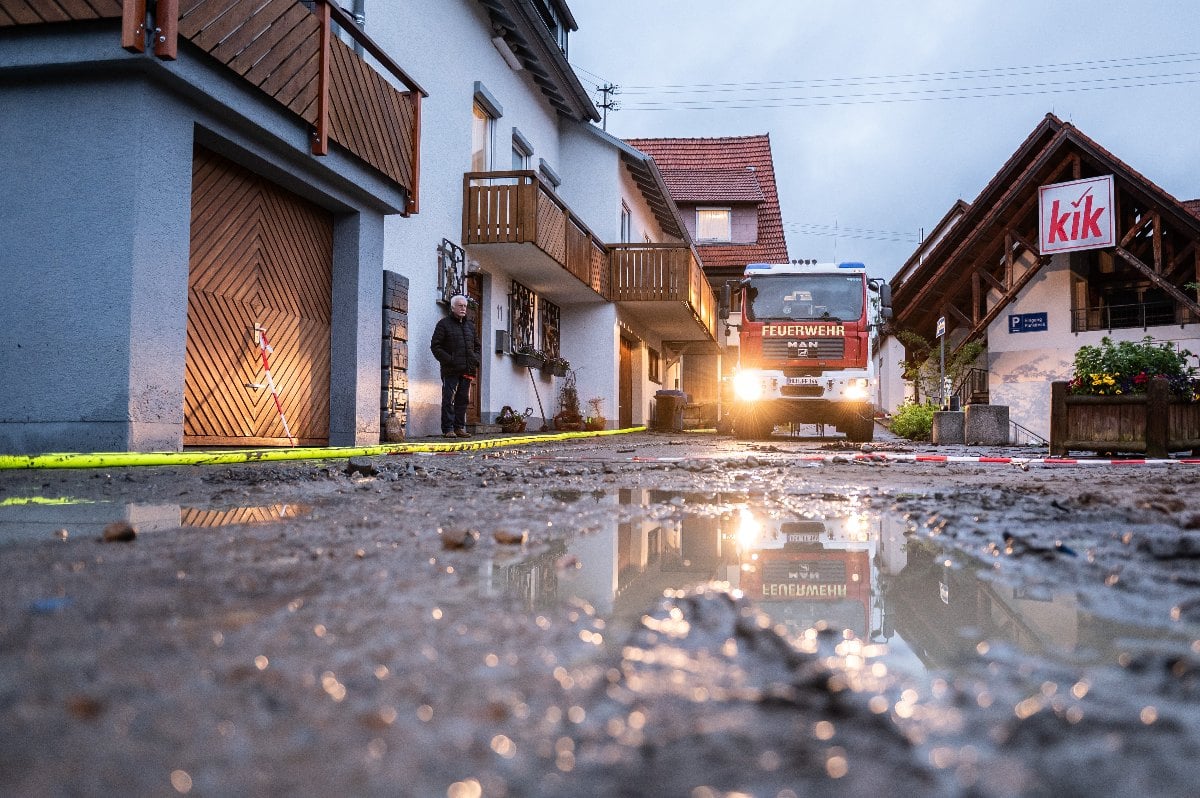In July alone, the DWD reported that Germany had seen 40 percent more rainfall than the 1961-1990 average, and 25 percent more than the 1991-2020 average for the same month.
“In 2021, Germany experienced the rainiest summer in ten years,” the DWD report concluded.
“A large part of this was due to the extreme rainfall in mid-July in North Rhine-Westphalia and Rhineland-Palatinate. This caused devastating floods that led to one of the most consequential natural disasters since the storm surge of 1962.”
READ ALSO: Climate change: Germany says time is ‘running out’ to save planet
The devastating floods claimed the lives of more than 180 people and caused billions of euros of damage to housing, businesses and infrastructure.
“On July 14th, the rain between the Cologne Bay and the Eifel region was so intense that it went down in the meteorological history books as the ‘rain of the century’,” DWD said.
More than 100 litres per square metre fell within 24 hours during the storm.
The Wipperfürth-Gardeweg DWD station near Wuppertal also broke the scales when it reported the highest amount of precipitation on record in Germany, with 162.4 litres per square metre falling in the region.
Meanwhile, floods in the Bavarian Alps in the same month left the world-famous Königsee bobsleigh and toboggan track in ruins and left at least three houses uninhabitable.
In a recent study, climatologists found that extreme floods had become up to nine times more likely due to climate change.
The current temperature of the earth – which is 1.2C higher than in pre-industrial times – has also made such severe weather events more intense, researchers found.
READ ALSO:
- Climate change made German floods ‘more likely and more intense’
- Clean-up underway in Bavaria after heavy floods wreak havoc
Normal amounts of sunshine?
In terms of temperature and sunshine duration, on the other hand, the summer of 2021 has been more or less within the normal range – even if August has arrived at a rather cool end.
The country experienced most of its summer sunshine in June, which according to the preliminary DWD report, was the third warmest since the beginning of records in 1881.
At the end of June, a fierce heatwave saw temperatures rise in part above the 35-degree mark, while many parts of Germany also experienced ‘tropical’ nights with temperatures above 20.
But even in the sunniest month, meteorologists noted unusually heavy rain, with regular local floods and thunderstorms occurring in the earliest weeks of summer.




 Please whitelist us to continue reading.
Please whitelist us to continue reading.
Member comments